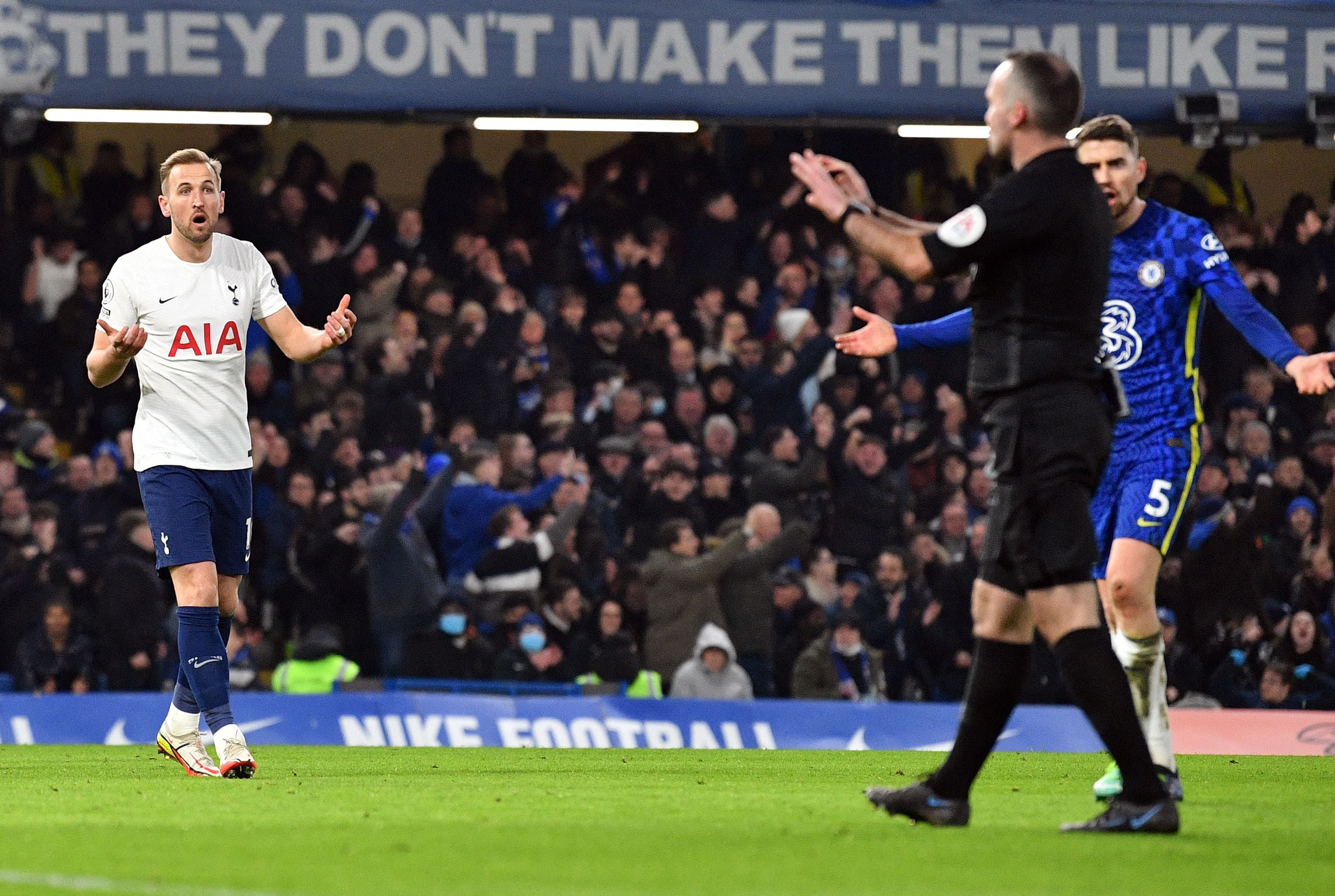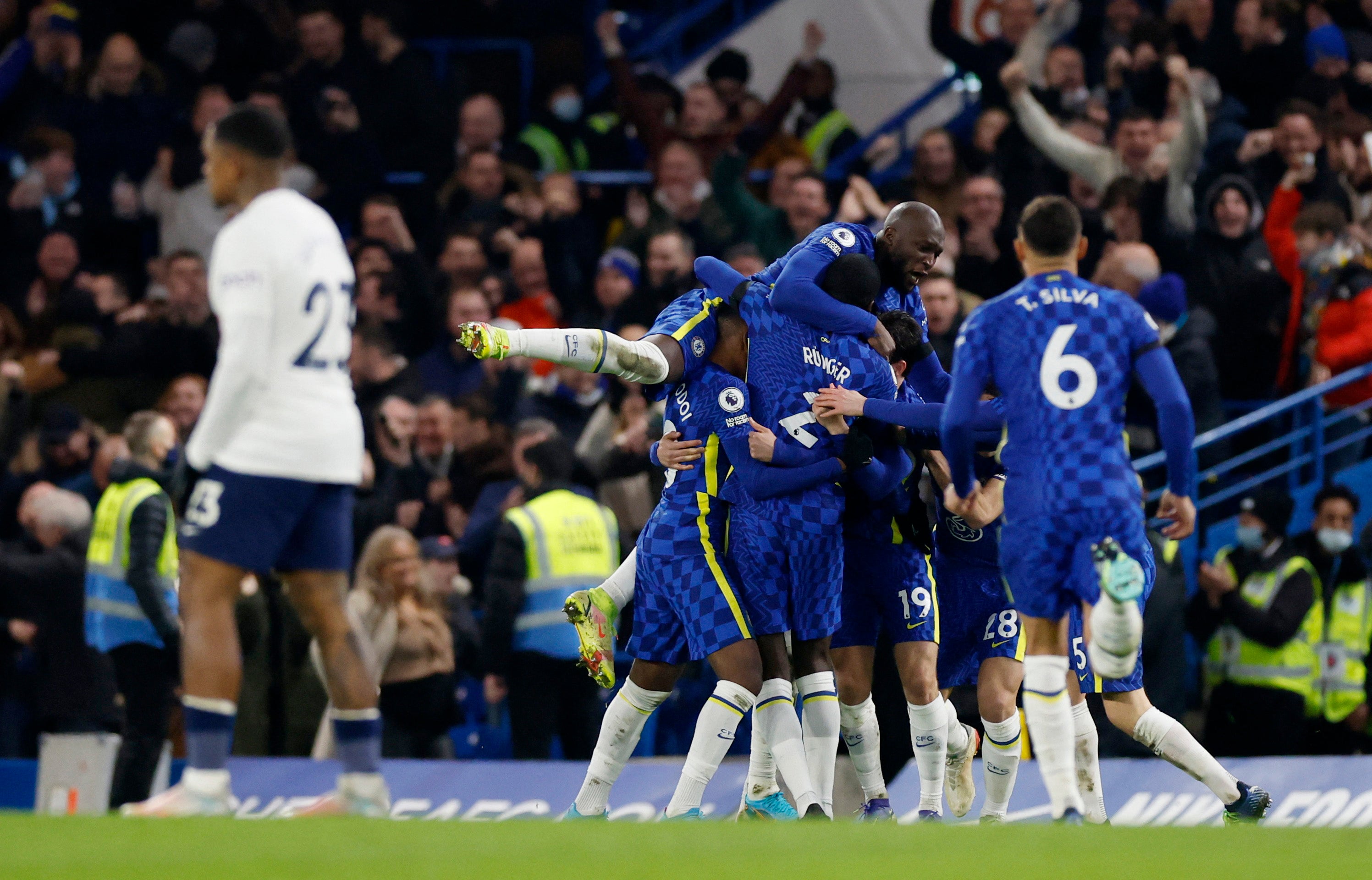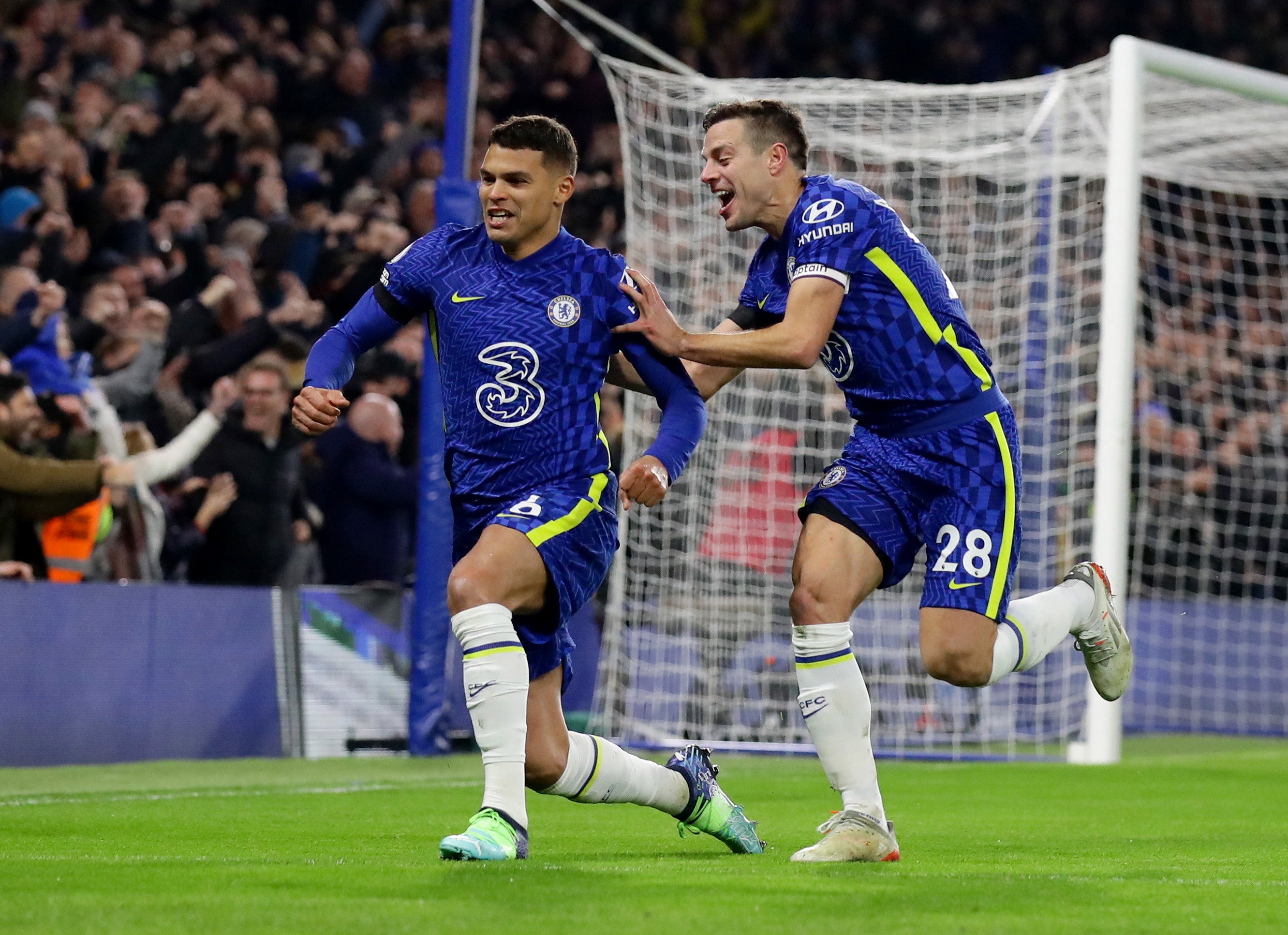
If Chelsea’s first two victories this month had amounted to a sort of suffocation, with the nature of their dominance slowly crushing Tottenham with a vice-like grip, the third act of this one-sided derby felt rather more spectacularly fatal. Yes, the goal itself that broke the deadlock was one of those truly breathtaking moments: a stunning Hakim Ziyech shot that gathered certainty as it curled towards the top corner. But the manner of this 2-0 victory, and the vast gap between these two close rivals, has felt as though it has only become more stretched with recent familiarity.
There will be some Tottenham supporters who rightly feel aggrieved after Harry Kane had a goal controversially disallowed in the first half for a faint push on Thiago Silva, but this was the type of performance that embodied Antonio Conte’s frustrations and will only fuel his irritation over a lack of reinforcements.
The Italian’s starting line-up said as much, almost pointedly defeatist in its approach, with a switch to 4-4-2 offering only Steven Bergwin’s pace on the break as a genuine threat. And so, while Spurs sunk into their own limitations, seemingly resigned to bobbing and weaving in the fragile hope of landing a Hail Mary, Chelsea were given more licence to shed their own attacking frustrations.
They had threatened to reign for a while in the first half. Chelsea had immediately established their oppressive dominance but were rarely able to force any clear openings. And when their best chance fell to Romelu Lukaku after half an hour, his snatched and scuffed shot from eight yards out felt like a neat summation of his past few months at the club. But while this may not have been a return to the deadly attacking air Chelsea wielded at the start of the season, there was a renewed killer instinct.
That much was a credit to Ziyech and Callum Hudson-Odoi, as well as Tuchel’s decision to revert to a 4-3-3. The pair ran Spurs’ full-backs ragged throughout, with Japhet Tanganga perhaps fortunate not to receive a second yellow card in the first half alone, while Mason Mount thrived in a No 8 role, linking up the play in a way few others can manage.

They weren’t quite redemptive performances, but there has certainly been an undercurrent of criticism towards Ziyech and Hudson-Odoi in recent weeks. The former can be a stop-start type of player, always silky and smooth to watch but without necessarily adding substance. Here he was fantastic, spinning Ben Davies into a hopeless web, with a freedom to roam and prise open the spaces in Spurs’ cramped block.

Similarly, Hudson-Odoi can suffer from bouts of inconsistency, with that daring directness to his running as a teenager having been a little blunted by maturity. But it was that missing quality that laid the groundwork for Ziyech’s wondergoal, surging into space aggressively again down the left before teeing up the type of strike Ziyech turned into a famous vintage during his days at Ajax.

But in truth, while those tactical tweaks should bear more fruit in the long-term, a third victory in as many weeks said more about Spurs than any Chelsea revelation. The narrative that Conte is embittered by the squad at his disposal will only take on a new layer of acrimony and strength now. He had already spent much of the game prowling his technical area in dismay, berating his side’s every mistake, and he did little to stir the imagination of a comeback after falling behind. In fact, Spurs’ response was decidedly weak and Ziyech so nearly followed his first goal with a second of near-equal brilliance when a wicked half-volley forced Hugo Lloris into a fine save.

For Spurs, it’s the slow descent into a cycle that, without any great intervention, is destined to keep repeating itself. There was no great deal of surprise when Silva leapt highest to confirm Spurs’ fate at a set-piece. Nor was there a sense that Chelsea had to be at their best to apply that finishing blow. Conte is a fine manager but no miracle worker. And the problem for Spurs is that he seems more infuriatedly aware of that than anyone.







